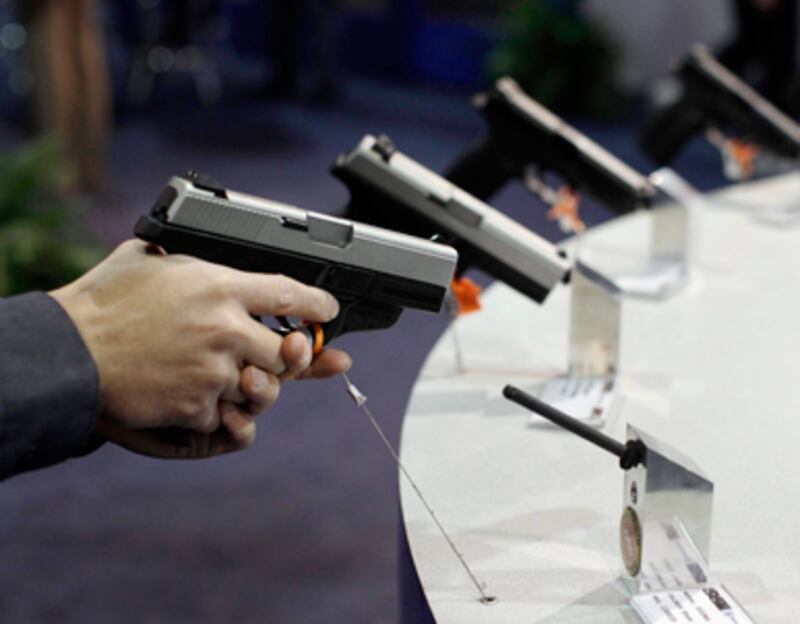Gun control is back. In contrast to other notable mass murders, like the one at Columbine High School in 1999, the shooting of Representative Gabrielle Giffords has placed gun control squarely back on the agenda. Even Dick Cheney, one of our most staunchly pro-gun politicians, has suggested it may be time to reconsider America's gun laws.
The Arizona shooting is having this unexpected effect simply because Giffords was a member of Congress. A dozen innocent high school students being gunned down is met with silence, but attempt to murder an elected official and politicians jump.

The most talked about proposal on the table is a ban on magazines that can hold more than 10 rounds, proposed by Representative Carolyn McCarthy, whose husband was killed and young son severely wounded in the Long Island Rail Road massacre in 1993. McCarthy's proposal, however, is encountering stiff opposition in the gun rights community. Many commonplace handguns, including most side arms worn by police officers, come straight from the factory with a standard magazine capable of holding 14 to 16 rounds.
President Obama might propose closing the loophole in federal law that allows people to buy firearms without a background check at gun shows, through classified ads, and elsewhere. Under current law, only federally licensed dealers have to conduct background checks. The administration may recommend requiring all gun sales to go through a federally licensed dealer. This is feasible—California and four other states require it—but the gun lobby will portray it as a backdoor scheme to create a national registry of gun owners. Expect a vigorous fight if this is what the administration puts forward.
Perhaps the only reform with a most realistic hope of passage is one that improves the reporting of mental health and drug use information into the database of records used for background checks. Not all states submit the required records to the federal government, and federal agencies don't always share all their information with each other. That's why Jared Loughner was able to pass a background check even after the U.S. Army rejected him because of his regular drug use—a habit that technically made him ineligible to own a gun.
But the biggest hurdle to any meaningful new law being enacted this year is not the NRA. It's the Tea Party.
New York Mayor Michael Bloomberg's organization, Mayors Against Illegal Guns, has proposed a viable and worthwhile set of reforms that would provide more funds to states to help cover the costs of record-keeping; stiffening penalties for states that don't submit records to the federal government; and clarifying the current gun laws' definition of mental illness.
If American history is any guide then the post-Arizona environment might actually lead to some change in gun control laws. Political assassinations—successful or not—have historically spurred the adoption of new gun control laws. The Gun Control Act of 1968, the first major federal gun law since the 1930s, was stalled in Congress for years until Martin Luther King Jr. and Senator Robert Kennedy were assassinated. Earlier in the century, in 1911, New York enacted its highly restrictive licensing requirements in the wake of an attempted assassination of popular New York City Mayor William Jay Gaynor. Gaynor's shooting shook the nation in part because of a widely publicized photograph of the bleeding mayor being helped by Robert Todd Lincoln, the only surviving son of the first American president to be assassinated.
Any reform faces an uphill battle. The gun lobby remains one of the most powerful forces in Washington, and the National Rifle Association and its allies are likely to stick to their usual practice of portraying any reform as a slippery slope to civilian disarmament. But the biggest hurdle to any meaningful new law being enacted this year is not the NRA. It's the Tea Party. Although often portrayed as motivated solely by economic issues, the members of this movement tend to have radically libertarian views about guns. Any Republican that votes for new gun control will face the wrath of the Tea Party come the next election cycle.
Adam Winkler is a constitutional law professor at UCLA.





